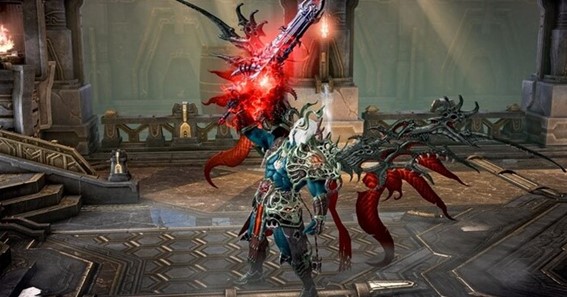Are you curious to know what is RMT in games? You have come to the right place as I am going to tell you everything about RMT in games in a very simple explanation. Without further discussion let’s begin to know what is RMT in games?
What Is RMT In Games?
In the world of gaming, a term often mentioned in discussions about in-game economies and player interactions is “RMT” or Real Money Trading. RMT refers to the exchange of virtual goods, currencies, or services within a game for real-world currency. In this blog post, we will explore what RMT entails, its impact on gaming communities and economies, and the potential risks and benefits associated with it.
Understanding RMT:
Real Money Trading involves players engaging in transactions where virtual items, currencies, or services are bought or sold using real-world money. These transactions often occur outside of the game’s intended economy and mechanisms, which may violate the game’s terms of service.
Types Of RMT:
- Virtual Currency Trading: This involves the buying and selling of in-game currencies, such as gold, gems, or coins, for real money. Players may purchase these virtual currencies to gain advantages, unlock content, or enhance their gameplay experience.
- Item Trading: RMT also encompasses the trading of in-game items or equipment for real-world currency. Rare or powerful items can hold significant value within the game’s community, leading to a market for players to buy and sell these items for profit.
- Account Selling: Some players choose to sell their entire game accounts, including characters, progress, and achievements, to others who are willing to pay for a head start or specific in-game advantages.
Impacts And Considerations:
- Economic Effects: RMT can disrupt the in-game economy by creating an influx of virtual currency or rare items, which can devalue in-game rewards or upset the balance of the gameplay experience. It may also foster an uneven playing field, where those with real-world resources can gain an unfair advantage over others.
- Community Dynamics: RMT can influence player interactions and social dynamics within the gaming community. It may lead to conflicts, scams, or an environment where financial gain takes precedence over fair competition and cooperative gameplay.
- Developer Response: Game developers often take measures to combat RMT, as it undermines their monetization strategies and disrupts game balance. They may employ anti-cheat measures, impose stricter rules and penalties, or offer legitimate means for players to acquire desirable items or currencies within the game.
Risks And Benefits:
- Risks: RMT carries several risks for players, including scams, fraud, and account theft. Engaging in RMT transactions outside of official channels may expose players to untrustworthy individuals or websites. Additionally, the violation of a game’s terms of service can lead to penalties, including permanent bans.
- Benefits: Some argue that RMT provides opportunities for players to monetize their gaming skills and investments of time and effort. It allows players to acquire desired items or currency without excessive grinding or luck-based mechanics. Furthermore, RMT can offer a way for players in countries with weaker economies to participate in the gaming market.
Conclusion:
RMT, or Real Money Trading, is a practice that involves the buying and selling of virtual goods, currencies, or services within games for real-world money. While it presents potential benefits for players seeking shortcuts or financial opportunities, RMT can also disrupt game economies, impact player interactions, and pose risks such as scams and account theft.
Game developers strive to maintain fair gameplay and a balanced in-game economy, often taking measures to combat RMT. Players should exercise caution when engaging in RMT transactions and be aware of the potential consequences, both in terms of game penalties and personal security.
As the gaming industry continues to evolve, finding a balance between player engagement, fair competition, and monetization remains a challenge. The ongoing discussions surrounding RMT highlight the complex relationship between virtual economies and real-world value within the gaming landscape.
To figure out such kinds of things on DeleteBy
FAQ
Why Do Games Not Allow RMT?
It follows that if RMT is a transfer of goodwill, then it must fall within the domain of the private autonomy of players, and developers and publishers have no legal standing to ban RMT. Such bans are unfair insofar as they heavily infringe upon players’ autonomy and their rights to the intangible value they have created.
What Are RMT Players?
Real Money Traders—also known as RMT or more widely as “gold sellers”—are players or organized groups who use stolen accounts, credit card information, and other unlawful methods to amass and resell gold or items to players for real money.
What Is RMT In Pc?
Intel® Ready Mode Technology (Intel® RMT)
What Does RMT Stand For Ffxiv?
Real Money Trading (RMT) is the buying and selling of in-game data (items, characters, etc.) in exchange for real-life currency. This type of activity is prohibited in FINAL FANTASY XIV.
I Have Covered All The Following Queries And Topics In The Above Article
In Online Games, What Is RMT Mean?
Is RMT Illegal
What Is RMT In Tarkov
What Is RMT Ffxiv
Best RMT Games
RMT Meaning
What Is RMT Course
Real Money Trading Games
What Is RMT In Games
What does RMT activity mean
What does RMT mean in a game?
